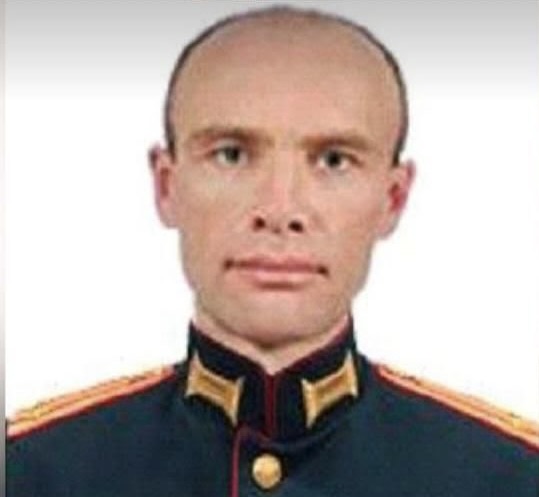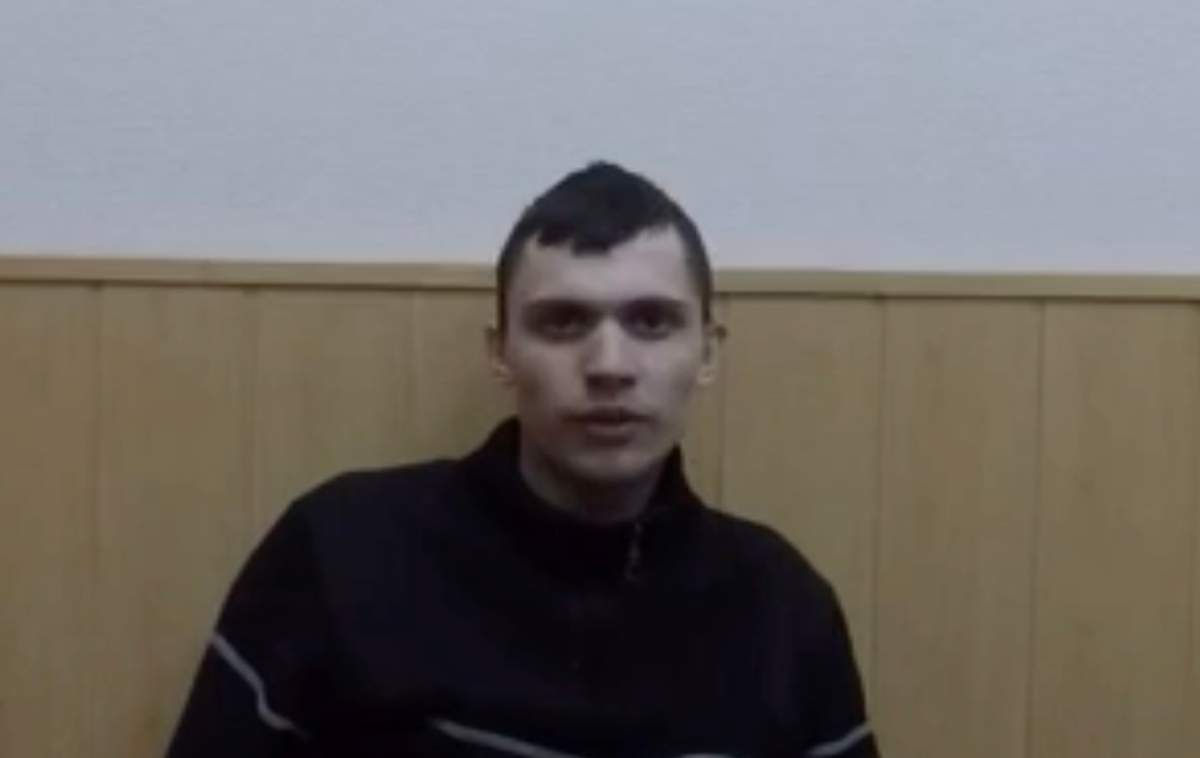
By
Stewart Bell
Global News
Published July 7, 2022
6 min read

KHARKIV — During his videotaped interrogation with Ukraine’s state security bureau, the injured Russian soldier looked nervous.
Breathing heavily as he responded to questions, the young prisoner explained his commander’s orders on the first day of the Russian invasion.
After crossing the border that morning in an armoured column, his unit was on the ring road that encircles Kharkiv city when a traffic jam formed, he said.
“The political officer got tired of it, and he said to us, ‘Shoot the civilians,’” the prisoner said in a video of his interrogation, obtained by Global News.
The commander’s deadly order initiated a sequence of events that defies simple narratives about the Russian invasion of Ukraine.
Unwilling to kill innocents, two Russian soldiers disobeyed and tried to save a woman and her daughter. When Russian troops opened fire, the woman was killed.
So was one of the insubordinate soldiers. The other was badly wounded and it would take another act of humanity to save his life.
The woman who came to his rescue was a Kharkiv lawyer named Karolina Perlifon, the passenger in the car whom the defiant Russians tried to save.
In an interview at the home she shares with the dogs she inherited from her mother Iryna, she recalled her moral dilemma.
“It was my choice to save him or not to save him,” she said. “And I said to him that he will be able to live, and I will save him.”
“He’s a human who was just a hostage of the situation,” she explained. “He directly didn’t do anything bad, and for me personally it was a pity for him.”
On Feb. 24, she and her mother woke early in Bobrivka, their village northeast of Kharkiv, to the sound of explosions and news of the Russian invasions.
Uncertain what the future held, they drove into Kharkiv to stock up on dog food and supplies.
They were heading back to Bobrivka when they came upon Russian tanks blocking the ring road.
And then the Russians started shooting at cars.
Terrified, Iryna turned her car around and stopped. She switched off the car and two Russian soldiers came running over.
“They told us it’s not safe to be in the car, so we should get out of the car. We ran out of the car and we were hiding with them,” Perlifon said.
The four of them hid while the Russian troops on the road shot at the cars. Perlifon phoned her father to tell him what was happening.
“The bullets were flying all around us,” she said.
Her mother was the first of the four to get hit. One of the disobedient Russian soldiers threw Perlifon to the ground.
He stood to tell his colleagues to stop shooting, that they were Russians too.
But then he fell. He had been shot. He tried to draw his gun to fire back but was shot again and died.
Perlifon tried to shake her mother awake until she realized she had been shot in the head and was dead. The second Russian soldier was not moving either.
Convinced this was the end, Perlifon hid behind a wall and recorded a video in which she thanked her parents for the life they had given her.
Forty minutes passed, maybe an hour. She realized she needed to get away so she went to the car but the Russian soldier woke. He had been shot in both legs.
She understood the difficult decision she had to make: To leave a man to die or to spare a soldier who had just invaded her country.
He crawled to the car. She helped him lie down in the backseat. She realized her mother had the keys. She found them in Iryna’s hand and said her goodbyes.
“I just hugged her and kissed her,” Perlifon said. “I said to her that I love her, and I ran to the car to drive out of there.”
She drove fast, her hands shaking, and phoned her father to tell him she had escaped.
“And I said to him, ‘I have a Russian soldier in my car who is wounded,’” she recalled.
The soldier was in and out of consciousness. There was blood all over the back seat. He was suffering from delusions.
“He asked me to drive him home, but I said to him, ‘I can’t drive you home,’” she said.
He told her he needed a drink. She stopped for water and called an ambulance. It arrived five to 10 minutes later.
She never saw him again, the Russian soldier who owes his life to her, and to whom she owes hers.
Perlifon has watched his videotaped confession and said it was accurate.
“The lieutenant colonel gave the order to shoot civilians,” the captured soldier said in the recording.
In the five-minute version of the video obtained by Global News, he said that when the shooting began, he and his lieutenant, Ivan Minkov, made a decision “to save civilians.”
“The lieutenant ran to them, started pulling them out of the car and shouting, ‘Come here.’” he recalled in the video.
He recounted that he joined his colleague and they hid with the two women. But their commander, a lieutenant colonel, “managed to see that we are saving civilians and he gave an order to shoot us.”
“We were seated, with the daughter behind the garage until everything was calm,” he said. “The daughter proposed to drive me from there and call the ambulance.”
“Then she walked to her mother,” he said. “She took the key. She was crawling to the car. She pushed me in the car in the back seat, turned on the car.”

The commander who gave the order to shoot has been identified as Lt. Col. Yevgeny Alexandrovic Zelenov, Commander of the 74th Separate Guards Motorized Rifle Brigade.
Kharkiv war crimes prosecutors said this was the first case to hold a Russian commander responsible for ordering the killing of civilians.
“That is our goal, to go to the top of the commanders,” Andrii Kravchenko of the Kharkiv region prosecution service told Global News.
A website that tracks the killings of senior Russian officers in Ukraine lists him as dead on March 17. Global News was unable to confirm that.
Zolonov was honoured by Russia for supposed “heroic actions” in March. The citation said despite being badly injured, he destroyed an armored personnel carrier and captured 11 “nationalists.”
Following the loss of her mother, Perlifon returned home to Bobrivka to care for the dogs. She survived a month under Russian occupation.
Without heat or electricity, she ate porridge cooked over the fire and slept at night with the dogs on her bed to keep her warm.
Her mother loved dogs so much that after studying music and aviation, she opened a breeding kennel in Bobrivka.
“My mom for me was everything,” Perlifon said. “And when she was killed, it was like they killed me in reality.
“I want people to know how she died and what kind of person she was, and I don’t want her death to be in vain.”
She supports Ukraine’s attempt to prosecute the commander who gave the order to shoot.
But she doesn’t believe the soldier who helped her should be charged. For the moment, prosecutors think otherwise. He remains a prisoner of war.

Comments
Want to discuss? Please read our Commenting Policy first.